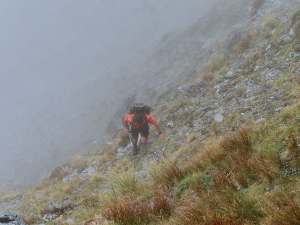Scientists at Massey University have been awarded $480,000 to find out whether vaccinating dairy cattle against the bacterial disease leptospirosis has been fully effective.
Preliminary research suggests perhaps not. So the independent not-for-profit Agricultural and Marketing Research and Development Trust (Agmardt) and the Sustainable Farming Fund of the Ministry for Primary Industries, are funding three years of further research to verify this and determine what can be done better in future.
The funding is going to scientists from the Farmer Leptospirosis Action Group, who will quantify vaccine programme efficiency in dairy herds across New Zealand by collecting blood and urine samples from animals and questioning farmers about their vaccination practices. They will then develop best practice guidelines for the industry.
Group member professor Cord Heuer, from Massey’s Institute of Veterinary, Animal and Biomedical Sciences, says vaccination programmes were probably compromised by timing and incorrect on-farm management of vaccination.
“By interviewing farms, collecting samples and other information we can find out exactly why [it was not effective],” Heuer says.
A key activity will be making the guidelines and recommendations from the research readily available to farmers, veterinarians and industry stakeholders through the Know Lepto website, a DVD and professional meetings.
Heuer says people right across the dairy industry will benefit from the research.
“We expect people to respond well to the research. There’s already high awareness and use of vaccines and ongoing marketing campaigns.
“This research is a major contribution to the improvement of vaccination practices of dairy cattle. It will have implications for animal health and welfare as well as occupational safety and health of farmers, farm workers and professionals working in the dairy and allied industry.”
The Leptospirosis Research Group includes world leaders in leptospirosis disease and diagnosis research Dr Jackie Benschop, Dr Julie-Collins-Emerson, professor Peter Wilson and professor Heuer – all from Massey.
The programme is also supported by Rural Women New Zealand, the New Zealand Veterinary Association, Dairy New Zealand and Federated Farmers.
- This article was written by Grace Pettit.










